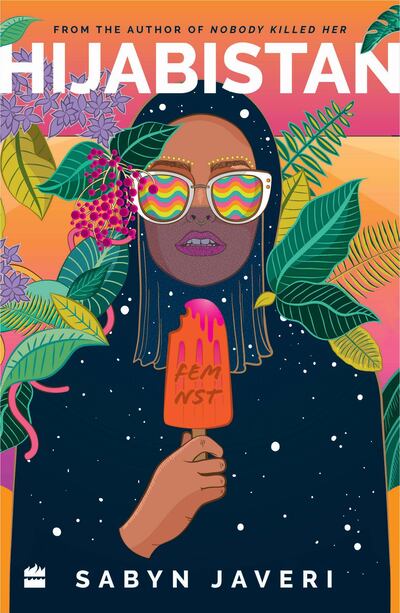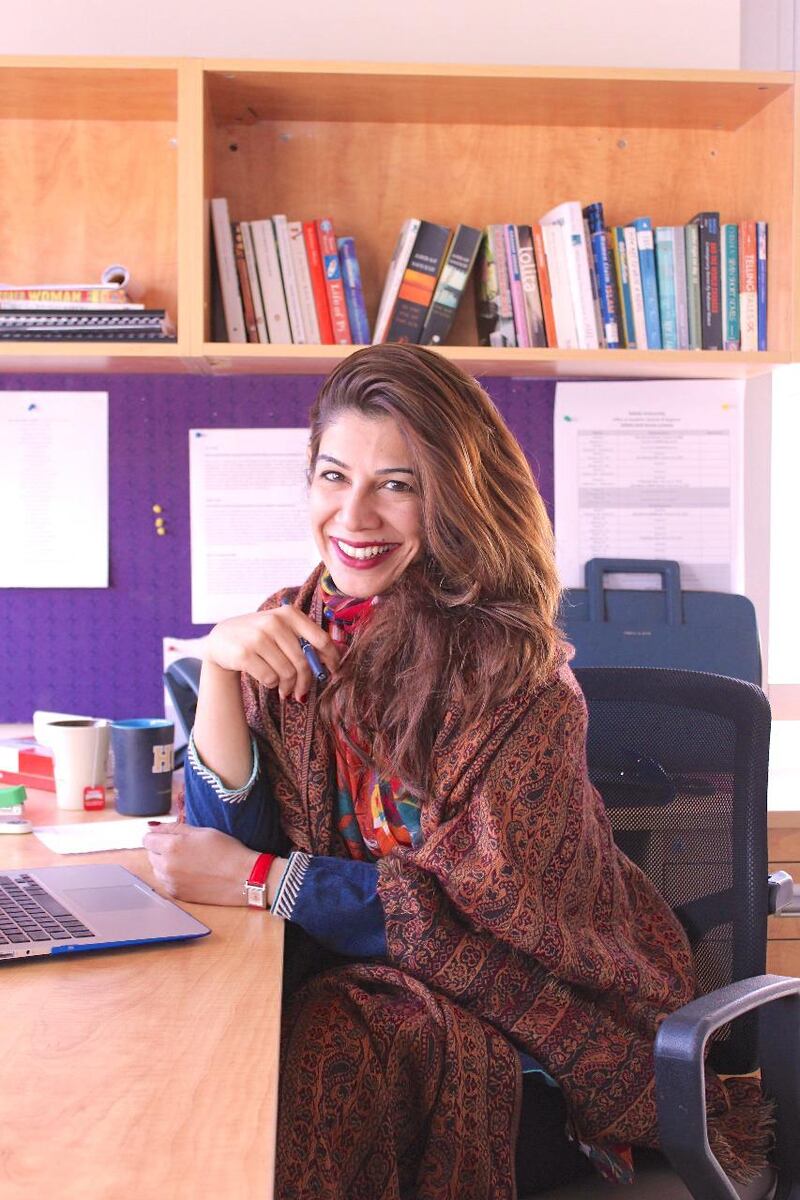A mix of comedy, heartfelt empathy and raging women's empowerment, Hijabistan is a collection of short stories that give a powerful insight into the lives of Pakistani women. Reflecting the voices of the supporters and opposers, the book is a cultural conversation which both divides and unites.
From secret love affairs to being lured to a life with Isis, Pakistani author Sabyn Javeri tells stories through the voices of strong women from her homeland. The evocative "feminist stories" reveal the lives of young women resisting stereotypes and presumptions, from amongst their own as much as those outside.
Javeri says the use of the hijab in her stories is not about the physical garment but its metaphorical expression; what she calls “the veil between men and women, between women and women, between women and society, and most often, between women and their desires”.
The stories highlight society’s division of women into “good girl and bad girl” with what she says has “no room for in-between”. “If you dress a certain way and behave in a certain manner you are a good girl, and if you don’t, you are a bad girl,” she says. “The darker stories crash that notion and I’m not surprised that many are angry because no one wants to admit that subconsciously we are endorsing patriarchy and misogyny.”
While there is certainly “imagination” behind the stories, these women come from real life, from the streets of Pakistan itself; the female taxi drivers and truck drivers covering to minimise attention, women making their way in a world where the hijab simultaneously frees and constricts them.
The lead character (referred to only as "the girl") portrays this in The Urge. Narrating her married life, as she slowly becomes imprisoned by the man her mother says, "loves her too much", she says: "The hijab was not enough for him [her husband]. He made me wrap a large chadder over my hijab and abaya. He got me to swear that I would always wear a bra and a vest.
"Even in the sweltering hot Karachi summers, I had to don a man’s vest under my clothes, and leggings under my shalwar, lest I kicked my legs and someone saw my ankles. But mere clothes are not enough when one’s mind is insecure. The body must not only be covered up, it must be locked up. And so he began to lock me up every morning when he left the house. Soon, the windows were boarded up too, the stairway to the roof barred and door padlocked from outside. The cable was cut off. The phone disconnected.”

In The Date, Javeri shows the dichotomy of young women longing to be let free, but constrained by over-protective families. Javeri narrates: "Ten minutes before her stop, she texted her younger brother to meet her at the bus stop. And he was there, probably nagged by her mother, blackmailed into helping his sister who, crippled by her gender, was helpless in walking home alone."
The book started as a research project – Javeri is a professor of literature and creative writing at Habib University in Karachi. The case studies of her research would become the central characters in Hijabistan. "The one thing I found in common when researching these stories was that all the women I spoke to were hiding something. Therefore the title Hijabistan – land of the hidden."
She took inspiration from Urdu literature from the 1930s, which she came across as a student at Oxford University.
Written by Muslim women in pre-partition India, addressing issues including women's rights, marital rape and birth control, she said: "It made me think that if Muslim women were writing about these so-called controversial and taboo topics back in 1930s, why do we fear to raise our voices now? Growing up in a dictatorial society, it's taken me a long time to get over my own inner inhibitions, which are more dominating than any state bans or censorship. I wanted to write a book like Hijabistan, which focuses on stories and issues which are veiled, to bring this out in the open."
The author is in the UAE this week to talk about her book. She has a meet-the-author session with Dubai Literary Society and a student event at New York University Abu Dhabi.
She feels the book will be well-received in the UAE. "Cultures which are closer to the complexities of what the veil represents are able to identify with the book more," she says." In many ways, the Muslim woman's identity is far more complex in a Muslim-dominated patriarchal society than it is in a secular one where it is in a way over simplified."
Sabyn Javeri will be at Dubai Marina Mall at 6.30pm today and at NYUAD on Thursday. For more information, visit www.eventbrite.co.uk







